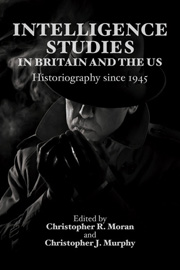Introduction: Intelligence Studies Now and Then
Published online by Cambridge University Press: 05 October 2013
Summary
In both the United States and the United Kingdom, the field of intelligence studies represents one of the fastest growing subsets of international history, political science and strategic studies. This dynamism is evidenced not only by the vast volume of publications that are generated, but by the existence of dedicated departments and centres, specialist degree programmes, conferences and professional associations. In the US, intelligence is taught at a host of top universities, typically in the form of advanced option courses and special subjects. Beyond this, there are institutes specifically designed to prepare students for entry-level positions in the intelligence community, including the Center for Intelligence and Security Studies at the University of Mississippi and the Mercyhurst College Institute for Intelligence Studies. A similar landscape exists in the UK, with centres at Brunel, Buckingham and Aberystwyth flanked by undergraduate and postgraduate teaching in intelligence at numerous major academic institutions, with the study of intelligence at Masters' level at the University of Salford fast approaching its 25th anniversary year. The flourishing of intelligence studies is also reflected in the considerable group of content-specific journals. Founded in 1984, Intelligence and National Security is recognised as the most pre-eminent journal, but it is accompanied by Studies in Intelligence, the International Journal of Intelligence and Counterintelligence and the Journal of Intelligence History, the latter which was relaunched along new lines in 2012.
- Type
- Chapter
- Information
- Intelligence Studies in Britain and the USHistoriography since 1945, pp. 1 - 16Publisher: Edinburgh University PressPrint publication year: 2013

